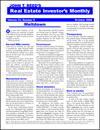John T. Reed’s review of Belsky and Gilovich's book
Why Smart People Make Big Money Mistakes


In the 11/98 issue, I wrote an article called “Why Johnny Can’t Invest.” It was about a series of common, irrational money mistakes. There is now a book on that topic called Why Smart People Make Big Money Mistakes which discusses “the new science of behavioral economics.” I recommend it strongly, but with reservations. Here are some of the mistakes authors Belsky and Gilovich discuss:
- “mental accounting” The tendency to value some of your money less than others leading to waste.
- “loss aversion” Placing greater value on a loss than on a gain of the same amount.
- “sunk cost fallacy” The notion that past expenditures are relevant to decisions on new expenditures.
- “status quo bias” Preference for keeping things the way they are.
- “endowment effect” Disproportionate high regard for what we already own compared to what we might acquire.
- “decision paralysis” Increased propensity to procrastinate the more choices we are faced with.
- “money illusion” Tendency to overlook inflation.
- “ignoring the base rate” Tendency to miss or disregard probabilities.
- “bigness bias” Tendency to discount the importance of numbers that represent a small percentage of a bigger purchase.
- “anchoring” Basing a decision on an irrelevant fact.
- “confirmation bias” Bias in favor of info that says you’re right.
- “disconfirmation disinclination” Tendency to discount information that disproves your theory.
- “planning fallacy” Previously identified by Murphy as one of his laws: “Everything takes longer than you think.”
- “FSBO fallacy” Belief that a seller of real estate is better off without a real estate agent. (In my opinion, this is only a fallacy some of the time.)
- “investing with the herd” What it sounds like.
One important phenomenon which they did not name is the tendency of people to be overconfident about their own knowledge or abilities.
Better names
Naming phenomena like these can be enormously helpful in teaching people about them, but these guys do a lousy job of picking names. For example, “inflation blindness” would be far better than “money illusion.”
Wrong on real estate
The authors, and those whose research they report, have performed an excellent service. However, they get it wrong in a number of cases, especially when discussing real estate.
For example, they dismiss “loss aversion” as irrational. Not true. Losses are worse than equal-size gains once you pass the point of diminishing returns. For example, a person with a $200,000 net worth will be hurt more by losing $100,000 than he will be helped by making $100,000.
Stock market bias
But what really bugs me about the book is their pro-stock-market-anti-real-estate bias. The entire tone of the book is that the average person is irrational in many ways about money, but that the authors are here to enlighten them. However, I could write a whole article just about the irrational biases of Belsky and Gilovich.


For example, in a book that is otherwise mathematical and logical, they offer this lame analysis: “We’re at least somewhat ready to believe that ten years of leading the pack [by a mutual fund] is less a matter of luck than skill.” In fact, if a million guys flip coins weekly for ten years, a few of them will flip a disproportionate number of heads. That doesn’t mean they are good at flipping heads.
By the same token, if a 100,000 thousand guys pick stocks, a few of them will outperform the market over a ten-year period. But so would a few chimpanzees out of 100,000 throw darts at stocks that would outperform the market. It doesn’t mean the investors or chimpanzees are good stock pickers. Competent stock picking is impossible. There have been many lucky stock pickers, including many who said their luck was really competence, but no one can pick stocks.
They repeatedly boost the stock market as an investment relying on past performance as their reason. But every prospectus ever written says, correctly, that past performance may not be indicative of future performance. The fact that the stock market has done well over some recent period is as irrelevant to future decisions as a sunk cost. The fundamental fact is that no one can predict the future and having seventy years of statistics about the past does not change that.
Ever heard of leverage?
One of their big points about real estate is that if it goes up in value, but not as much as inflation, you lose money. Belsky is a former financial journalist (Money, CNN) and Gilovich is a psychology professor. Apparently neither knows about leverage.
They say a guy who buys a house for $200,000 then sells it for $154,000 or 23% less than he paid, at a time when prices in general fell 25% is better off than another guy who paid $200,000 then sold for $246,000 or 23% more than he paid at a time when prices in general went up 25%.
They’re nuts. With a 20% down payment, the first guy loses all his equity and then some. The second guy sees his equity rise in value by 23% x 5 = 115%. Subtracting the 25% increase in inflation, he is still 90% better off. Their point would only be valid if both buyers paid all cash.


Required reading
This book should be required reading for all real estate investors. But before you read it, cross out all references to real estate or to the superiority of the stock market as an investment. It basically is an argument for applying the scientific method to financial decisions. That is, check your financial theories against the facts to see if they are correct.
This originally appeared in Real Estate Investor’s Monthly newsletter.